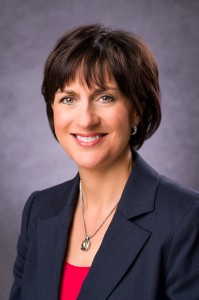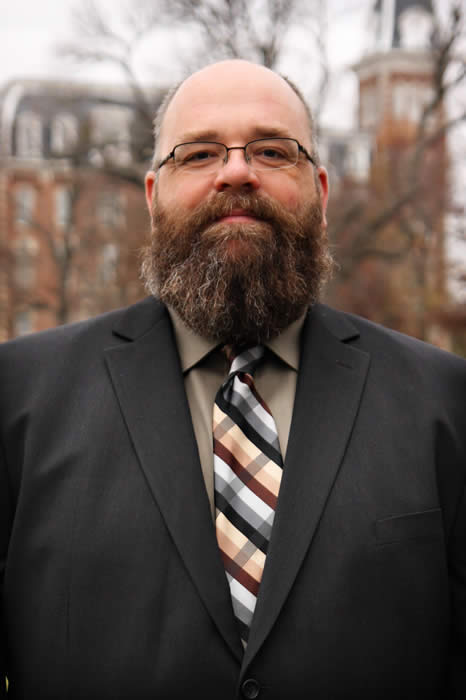Part 3 of 4
What exactly is the term “school choice” supposed to mean, specifically when it comes to charter schools?
MORE NEWS: Know These Before Moving From Cyprus To The UK
Does it mean encouraging the development of a wide array of charter schools, and allowing parents to shop and discover what type of school works best for their children?
Or does it mean offering parents a more limited menu of charter schools that meet the prerequisites of politicians and education bureaucrats?
Officials from the National Association of Charter School Authorizers (NACSA), who have a great deal of influence in the charter school industry, do not hide their preference for the latter.
They lobby state governments to create laws to closely regulate the charter school industry. They promote regulations that set a high bar for charter schools to open, and recommend policies that close down schools that fail to meet academic expectations within a few short years.
They want to offer parents choices – but only the choices they pre-approve.
They ignore the fact that parents send their kids to various charter schools for a lot of different reasons. Some may be looking for safer environments for their children. Some may be looking for an increased presence of moral instruction. Some may be looking for a more competent football coach, because they know their student-athlete does better in class if his team has strong leadership.
Who knows?
MORE NEWS: How to prepare for face-to-face classes
Children may thrive at a particular charter school for no other reason than they are more comfortable. Maybe they found more friends, and are responding by paying more attention in class. Maybe they like the teachers better, or are more excited about learning because their charter school has a good chess club.
Who knows?
NACSA and state government officials certainly don’t know, because they have no way of knowing the children and their individual needs. Only parents or legal guardians (in consultation with on-the-scene educators) can know what works for the kids they are raising.
Chalkbeat described the impact on one family when a “poorly performing” Indianapolis charter school was closed in 2014.
“Lee Rhys felt he was out of options when the charter school his two sons attended was shut down by Mayor Greg Ballard’s office in 2012,” the story said.
“Ballard said The Indianapolis Project School was poorly managed, financially troubled and academically failing. But to Rhys, it was the first school where his boys seemed happy. When it closed, Rhys tried teaching Devon and Noah at home and he soon saw how badly their feelings were hurt by watching their school close.”
“It hit them when we started that they weren’t going back,” Rhys told the Star. “My older son said, ‘This isn’t a real school. You’re just a fake teacher with some fake stuff in a fake dining room classroom.’”
Test scores don’t tell the whole story
Stories like that don’t stop the bureaucrats from narrowly and defining the success or failure of a charter school, largely by overall student test scores.
The evidence can be found in the “Handout from the 2016 NACSA Leadership Conference in Atlanta.”
One part of the handout was titled “Outcomes: How do we talk about results?” It answers the question by pointing directly to math and English test scores as the sole indicator of charter school academic success.
“Reading – 56 percent no significant difference; 25 percent significantly better; 19 percent significantly worse. Math – 40 percent no difference; 29 percent significantly better; 31 p
ercent significantly worse.”
NACSA defenders argue that charter schools with failing test scores are no better for kids than a failing traditional school, and states should show little patience with them.
As NACSA President and CEO Greg Richmond wrote, “Time and again we hear, ‘Our students come to us far behind,’ ‘Standardized tests don’t tell the full story,’ ‘We can’t expect all these kids to graduate,’ ‘We just need more time.’
“These are the same arguments that defenders of failing schools have been making for decades. There should be no place in the charter school community for them. If we, charter school operators and advocates, do not offer better results for students, eventually the public will tell charter schools, ‘Never mind.’”
But Richmond is missing a key point. In the old days, before charters and other forms of school choice existed, kids attending horrible traditional public schools were pretty much stuck there, because most of them lacked the economic means to attend private schools.
These days, if kids attend a charter school that doesn’t work for them, for one reason for another, they are not trapped at all. They can go back to their traditional school, choose another charter school, or perhaps select another type of choice school, if they are blessed enough to live in a state that offers a wide array of options.
“Unlike conventional public schools, charters have no semi-monopoly on educating children who live within a certain ZIP code,” wrote Michigan Capitol Confidential. “Instead, they must build their enrollment by appealing to parents who want something better for their children than what the local conventional public school provides.
“If a charter school fails to deliver, then parents are free to send their children somewhere else. If enough parents at a charter school do this, the school may be forced to close.”
School choice advocate say test scores can be helpful tools to parents, but shouldn’t be used to limit the range of school choice.
“Tests can provide valuable information, but using the tests as the sole or primary metric of performance does more harm than good,” wrote Jason Bedrick in Education Next. “What’s needed is a more comprehensive understanding of quality that considers the needs of individual students, not just the ‘typical’ student, and that’s something that parents are in a much better position to determine than technocrats.

“Parents are interested in more than scores. Parents consider a school’s course offerings, teacher skills, school discipline, safety, student respect for teachers, the inculcation of moral values and religious traditions, class size, teacher-parent relations, college acceptance rates, and more. Schools held directly accountable to parents, rather than technocrats, have to take all of these factors into account.”
How much state regulation is needed to properly assist parents?
Jeanne Allen, president of the Center for Education Reform, said charter schools, like all schools, must be made to follow fundamental health, safety and anti-discrimination regulations.
Allen agrees that state tests must be administered to charter school students. The results of those tests, along with other data, like student attendance, graduation rates and college acceptance rates, must be made readily available to parents, she said.
But parents should not have their options limited by state laws that inhibit the establishment and improvement of charter schools, she said.
“Once schools are established it should be up to parents to make the decisions,” Allen told EAGnews.
Parents close bad charters, all on their own
The record shows that parents make smart decisions, without the help of NACSA or cumbersome state regulations.
In its 2015 State Policy Analysis, NACSA gave the state of Arizona a failing score in the category of “renewal standards” for charter schools, because “state law allows ‘reasonable progress’ to be sufficient for a charter to be renewed.”
It also gave Arizona a failing score in the “default closure” category, because “state law does not provide for default closure for failure to meet minimum academic standards.”
But bad Arizona charter schools do get closed, without NACSA’s standards in place.
In 2011, the Center for Education Reform published a complete list of Arizona charter schools that had been closed for various reasons. Of the 173 that were closed, 56 (approximately 1/3 of them) were shut down due to “inadequate enrollment.” That means parents voted with their feet.
Another 20 were shut down due to a lack of funding, which is another sign of parental disinterest, since state dollars follow students to the schools of their choice.

Only 17 Arizona charters on the list were shut down due to poor academic performance.
In 2013, education reformer Matthew Ladner noticed the same thing.
“Arizona parents seem extremely adept at putting down charter schools with extreme prejudice,” he wrote. “Arizona parents detonate far more schools on the launching pad compared to the number we see bumbling ineffectively through the term of their charter to be shut by authorities.”
So how have Arizona charter schools performed, in the absence of NACSA-endorsed state regulation?
Apparently not so bad.
A 2014 story published by the Arizona Republic reported that 73 percent of Arizona charter schools either improved their overall letter grade on statewide math and reading tests from the previous year, or earned an A or B grade.
A total of 341 charter schools earned an overall A or B grade, the news report said.
“In addition, 113 charter schools improved by one letter grade, 18 improved by two letter grades and four improved by three letter grades.”
In 2015 NACSA gave the state of Michigan poor marks (0 points out of a possible 6) in the categories of “renewal standards” and “default closures” for the same reasons – state law did not force the automatic closure of underperforming charter schools.
But the parents of Michigan, and the state’s charter authorizers, seem to be doing a pretty good job of identifying and eliminating the bad apples, without the assistance of NACSA or an overabundance of state law.
The Center for Education Reform, in a 2015 release, noted that 22 percent of Michigan charters ever opened have been closed, “far outpacing the national charter school closure rate of 15 percent.”
In Detroit, where charters have been popping up in huge numbers in recent years due to the miserable performance of Detroit Public Schools, authorizers seem to be tough on charter schools, without having their hands forced by state law.
Since 1994, “about 30 percent of the charters that have opened their doors within the city of Detroit have been forced to close by their authorizer,” according to Michigan Capitol Confidential.
NACSA was much happier with Michigan in 2016, after lawmakers adopted a much harsher “default closure” policy for charter schools.
“Any charter school that ranks in the bottom 5% of schools in the state for three consecutive years must be closed,” NACSA noted in its State Policy Analysis. “In addition, under a new A-F accountability system that will be administered in Detroit, any charter school that receives an F rating for the immediately preceding three school years must be closed or reconstituted.”

Is all that new regulation necessary, in Michigan at large, or more specifically in Detroit?
In 2015, Michigan Capitol Confidential reported that “Detroit schoolchildren in charter schools are getting a better education in reading and math than students in the city’s conventional public schools, according to a report released Wednesday by an organization described as the ‘nation’s foremost independent analyst of charter school effectiveness.’ The authors suggest that Detroit charter schools should serve as a model for other communities.”
“The study was performed by Stanford University’s Center for Research on Education Outcomes (CREDO), which analyzed student and school data from 2006 through 2012,” the news story continued. “It found that each year students in Detroit charter schools receive the equivalent of a few weeks to as much as several months of additional learning in reading and math compared to their peers at conventional public schools.
“(James) Lynn Woodworth, a research analyst with CREDO … said the benefits of being in a charter school instead of a conventional public school had ‘a big impact’ for Detroit schoolchildren.”
In the meantime, Michigan’s charter school community can’t keep up with public demand. The progressives say the schools aren’t regulated nearly enough, and believe more should be closed, but parents obviously disagree.
In 2015, there were more than 12,000 Michigan students on charter school waiting lists, according to Michigan Capitol Confidential.
Tomorrow: Don’t count on charter school crowd to support Trump, DeVos


Join the Discussion
Comments are currently closed.